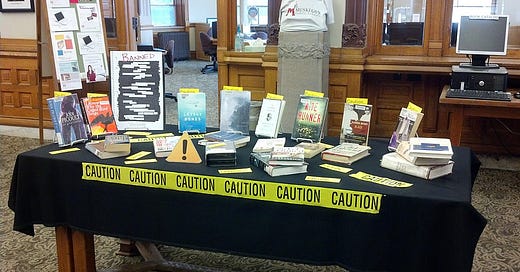Libraries need more reproductive health info
Researcher calls for librarians to incorporate and gather more materials related to abortion, birth control and pregnancy
I recently came across the work of Barbara Alvarez, a young reproductive rights researcher who was once a librarian. She recently conducted a study and wrote a research paper about the amount of reproductive health information available at libraries.
This is important work since poorer communities often rely on libraries for internet access to get facts that they wouldn’t be able to get elsewhere. Alvarez, a doctoral student at the UW–Madison Information School and CORE Lab member, conducted a nationwide survey of library professionals regarding sexual and reproductive health information access in public libraries.
The survey, completed in the spring of 2022, is believed to be the first such national analysis of sexual and reproductive health information access in U.S. public libraries. The results were published this March in the journal Public Library Quarterly.
Nearly 74 percent of librarians think they need to increase their offerings related to reproductive topics. She also found that there may be a stigma to seeking out that information or asking librarians at the reference desk.
Additionally, some librarians may exercise self-censorship because of how controversial the topic is.
Alvarez recommended more programs to promote the collection of these materials. She wrote an essay on the topic in American Libraries Magazine that is worth checking out.
One of the core goals of feminism going forward should be getting books related to women’s issues in public schools. I fought to get my last book Banished from Johnstown: Racist Backlash in Pennsylvania into school curriculums. We succeeded in getting all of the local districts to purchase the book and teach it during Black history month. The students write essays every year about how racism affected them and their ancestors.
My suggestion for doing this would be to use far more straightforward and basic language in appealing to administrators. Terms like critical race theory have been so politicized that as soon as someone hears it they resist the effort to include it. Instead, I simply told them it was a meaningful work of local black history. That worked. I suspect that if people went to administrators and said they wanted women’s history in curriculums, then it would have a fair shot at succeeding. It would also help to put documentaries in curriculums for them to watch about body dysmorphia and other self-image issues faced by teenagers so they learn it’s commonplace yet unhealthy.
The more tangible political or public rhetoric is, the more likely it is to succeed in persuading people to agree. That’s why we should avoid abstruse messaging and instead couch our arguments in language and terms that most people use and relate to. This was worth bringing to the attention of feminist leaders who may be able to do more on a national scale. But that’s what worked for me at the local level.




